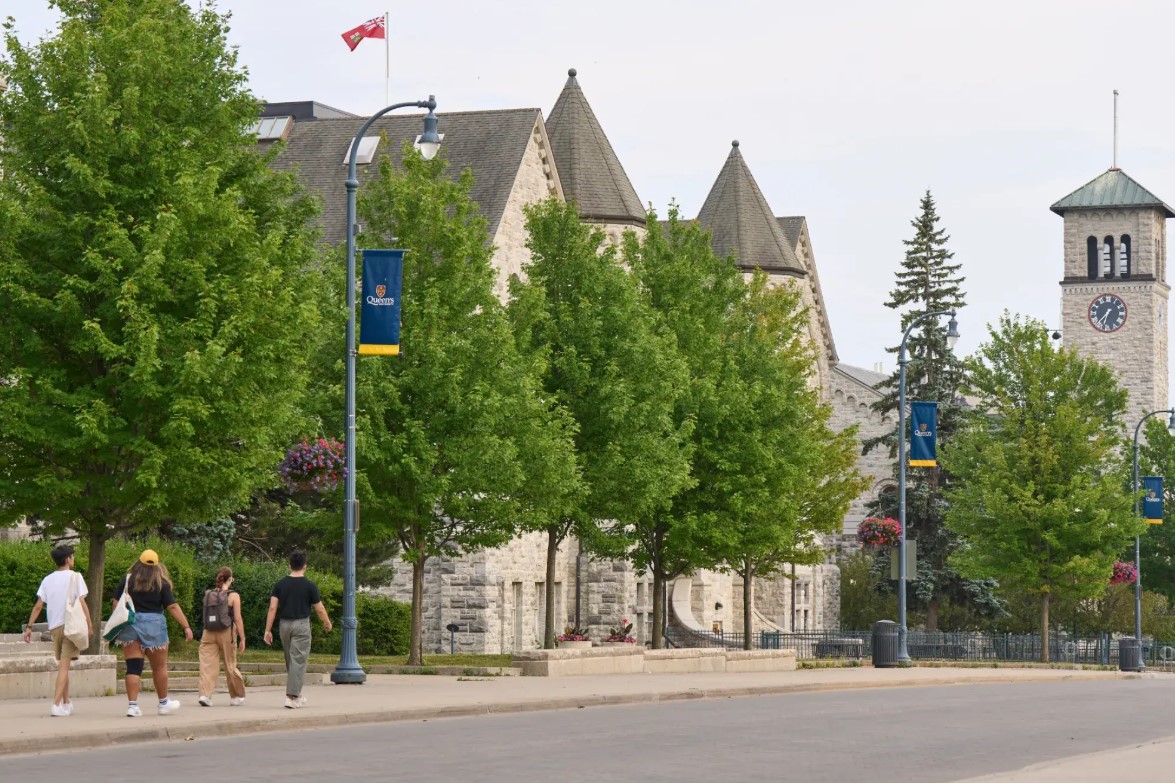
The Government of Canada has announced $554 million in research funding through the Natural Sciences and Engineering Research Council of Canada (NSERC)’s largest and longest-standing program, the Discovery Grants. Aiming to fuel the long-term goals of research, Discovery Grants typically support research over a five-year period and provide flexibility for researchers to explore promising and emerging topics.
Smith Engineering researchers received $5 million in new grants from the program.
“Canada’s science and research sector is solving some of the world’s greatest challenges, all while driving innovation, growth, and productivity,” says François-Philippe Champagne, Minister of Innovation, Science, and Industry. “Research programs like Discovery give researchers the flexibility to explore the most promising avenues of research as they emerge to ensure Canada remains a world leader in science and new technologies. Congratulations to all exceptional researchers receiving support, we look forward to learning of your successes.”
The Discovery Grants program supports excellent research in natural sciences and engineering which provides a favourable environment for research training. A total of 27 Smith Engineering faculty members have received support from the current cycle through various programs: Discovery Grants program; Discovery Launch Supplements; Northern Research Supplements; and Research Tools and Instruments Grants program. These projects will explore topics such as climate change, energy-efficient mining practices, sustainable concrete structures, power electronics, and smart textiles.
“Queen’s researchers are at the forefront of their fields, developing knowledge that will lead us towards a more sustainable future and help us answer some of science’s biggest questions,” says Nancy Ross, Vice-Principal (Research). “We are most grateful for the support from NSERC and the CRC program – support which enables breakthrough discoveries and provides fulfilling training opportunities for the next generation of scientists and engineers.”
“The success rate of 92% for Smith Engineering early career researchers compared to the 60% national ECR success rate is a testimony to the exceptional calibre of our newest colleagues and the superb support provided by our highly skilled and experienced staff,” adds Vice-Dean Amir Fam.
A full list of recipients from Smith Engineering:
Research Tools and Instruments Grants Program
Mark Daymond (Mechanical and Materials Engineering): Impact of Local Crystallography on Materials Degradation – $150,000
Keyvan Hashtrudi-Zaad (Electrical and Computer Engineering): Robotic Facility for Safe Human-in-the-Loop Rehabilitation – $87,905
Ehssan Koupaie (Chemical Engineering): Bench-Scale Hydrothermal System for Organic Waste and Biomass Valorization – $150,000
Discovery Grants Program (5 year grants)
Mahmoud Alzoubi (Mining): Toward Energy-Efficient Mining Practices: Numerical and Experimental Investigations – $135,000
Rachel Baker (Chemical Engineering; Chemistry): Exploring the Landscape of Electrochemical Reactions and Improving Process Sustainability through Paired Synthesis – $145,000
Richard Brachman (Civil Engineering): Limiting Geosynthetic Liner Tension in Waste Covers to Ensure Long-Term Environmental Protection – $260,000
Zhixing Cao (Chemical Engineering): Neural Network Solvers for Stochastic Dynamics of Gene Expression – $225,000
John Cartledge (Electrical and Computer Engineering): Performance Monitoring for Reconfigurable Optical Fiber Transmission Systems – $165,000
Ana Maria da Silva (Civil Engineering): Physics and Modelling of Large-Scale River Hydro-Morphodynamic Processes – $260,000
Élise Devoie (Civil Engineering): Frozen Soil Hydro(geo)logy in a Changing Climate – $175,000
Bradley Diak (Mechanical and Materials Engineering): Kinetics of Energy Dissipation in Materials: Experiments and Modeling – $165,000
Aristides Docoslis (Chemical Engineering): Microscale Electric Fields as Performance Enhancing Tools for Biosensors – $195,000
Ali Etemad (Electrical and Computer Engineering): Deep Representation Learning for Human-Centered Time-Series – $240,000
Lindsay Fitzpatrick (Chemical Engineering): Human Biomaterial Host Response Models: From Protein Adsorption to Fibrosis – $195,000
Jonathan Gammell (Electrical and Computer Engineering): Responsive Autonomy for Robots in Complex Moving Environments – $200,000
Saeed Gazor (Electrical and Computer Engineering): Distributed Multidimensional Learning Algorithms for Artificial Intelligence and Cognitive Sensing – $195,000
Aikaterini Genikomsou (Civil Engineering): Smart Materials and Technologies towards Resilient and Sustainable Concrete Structures – $180,000
Mark Green (Civil Engineering): A Holistic Framework for the Performance in Fire of Structures with Low Carbon Materials – $260,000
Mariam Guizani (Electrical and Computer Engineering): Developing Actionable Diversity and Inclusion Tools and Systems for a Socio-Technically Sustainable Open Source – $145,000
Praveen Jain (Electrical and Computer Engineering): Flexible Power Electronics Converters for Future Energy Networks – $320,000
Sean Kauffman (Electrical and Computer Engineering): Trustworthy Resource-Constrained Monitoring for Remote Safety-Critical Systems – $170,000
John Kurelek (Mechanical and Materials Engineering): The Individual and Interactive Aerodynamics of Wind Turbines: Experiments and Models for Next-Generation Wind Farms – $140,000
Nasim Montazeri Ghahjaverestan (Electrical and Computer Engineering): Smart Textiles to Monitor Brain Activities – $145,000
Ryan Mulligan (Civil Engineering): Predicting Coastal Environmental Conditions in a Changing Climate – $260,000
Majid Pahlevaninezhad (Electrical and Computer Engineering): A Novel Differential Geometric Control Theory for Power Electronics – $320,000
Xian Wang (Mechanical and Materials Engineering): Development of a Microrobotic System for Mechanical Ablation – $185,000
Stephanie Wright (Civil Engineering): Advancing Fractured Rock Cryo-Hydrogeology under Climate Change – $180,000
Discovery Launch Supplements
The successful eleven early career applicants also received $12,500 Discovery Launch Supplements:
Mahmoud Alzoubi (Mining), Rachel Baker (Chemical Engineering; Chemistry), Zhixing Cao (Chemical Engineering), Élise Devoie (Civil Engineering), Jonathan Gammell (Electrical and Computer Engineering), Mariam Guizani (Electrical and Computer Engineering), Sean Kauffman (Electrical and Computer Engineering), John Kurelek (Mechanical and Materials Engineering), Nasim Montazeri Ghahjaverestan (Electrical and Computer Engineering), Xian Wang (Mechanical and Materials Engineering), Stephanie Wright (Civil Engineering).
Northern Research Supplements
Élise Devoie (Civil Engineering): Frozen Soil Hydro(geo)logy in a Changing Climate – $87,500
Stephanie Wright (Civil Engineering): Advancing Fractured Rock Cryo-Hydrogeology under Climate Change – $87,500
Visit the link to read the news release by NSERC. This article is adapted from the original, first published in the Queen’s Gazette.